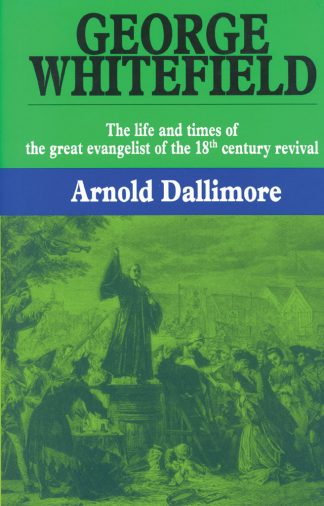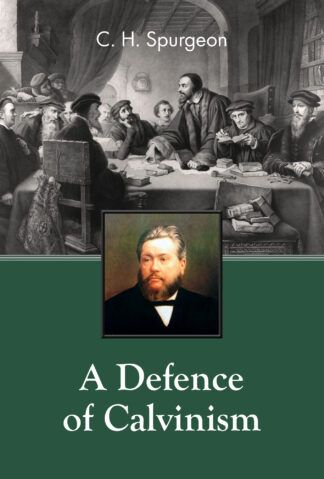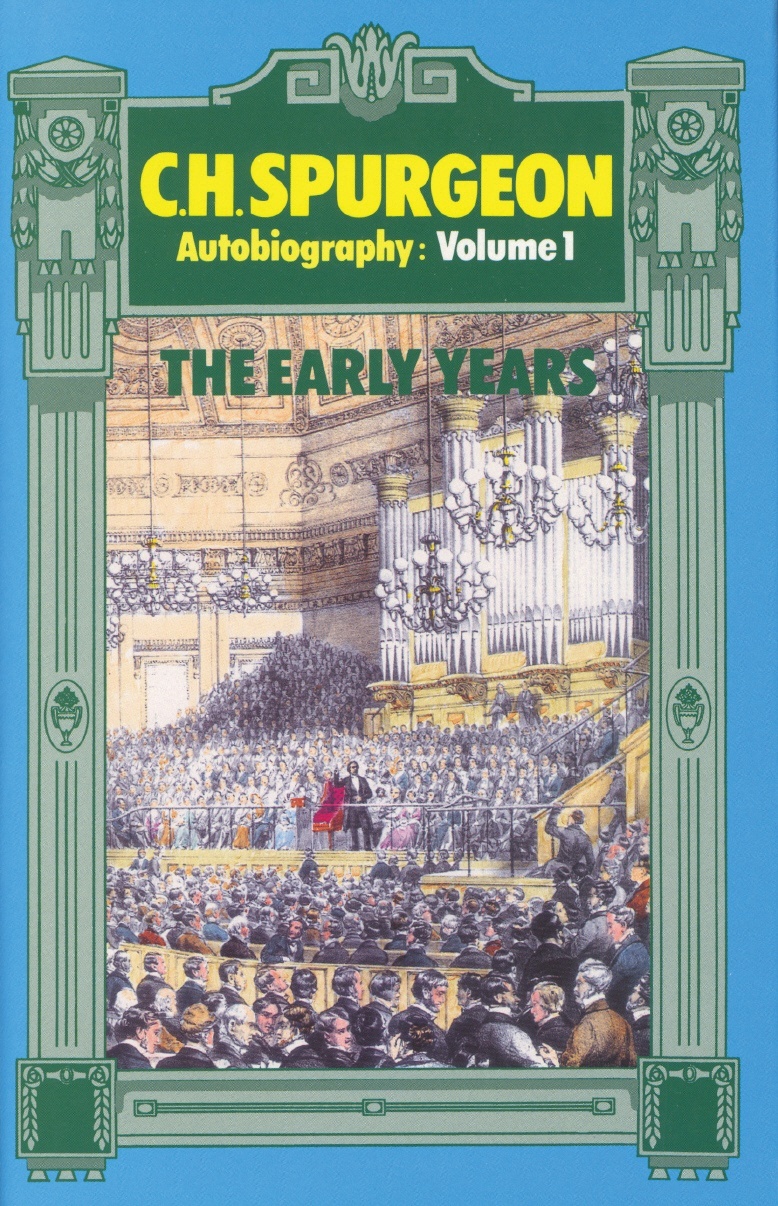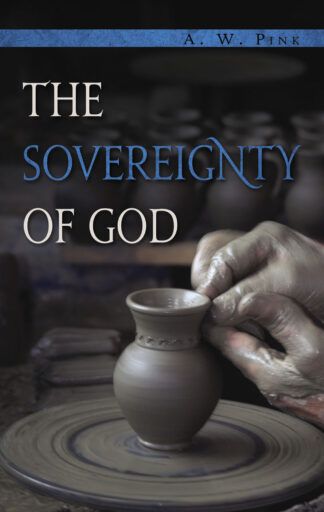The Experience of God’s Free Grace
In times of revival sinners experience a deep conviction of their sinful condition. Sometimes this experience can be agonising. As souls first discover their appalling condition of lostness and guilt and then are led to search for and find salvation by faith in Christ, the glory of God’s grace shines resplendently. The hymns which stem from revival times well express admiration for God’s saving grace. John Newton’s expression of gratitude is well known,
Amazing grace! how sweet the sound
That saved a wretch like me!
I once was lost, but now am found,
Was blind, but now I see.
The sense of former wretchedness, lostness and blindness is replaced by an overwhelming sense of joy and praise.
That the apostle Paul should receive grace and apostleship when his activities as a persecutor warranted nothing but wrath gave him a sense of indebtedness to which he constantly testified in his preaching and writings.
The experience of grace in the soul of Martin Luther was the base out of which the Lutheran Reformation was born. Luther studied under Johannes von Staupitz who was vicar general of the German Augustinian monasteries. Von Staupitz wished to free himself from the responsibility and it was obvious that he prepared Luther to be his successor. Under his spiritual guidance Luther graduated through all levels of theological study up to and including his doctorate – and this within the shortest time frame possible. Five years of study was the minimum requirement. All this took place in spite of the fact that Martin was in spiritual turmoil. He was tormented having no assurance of salvation. He tried everything including fasting and confession of all known sin. At any rate in 1513 he began lecturing on the Psalms. He went on to expound Romans and then Galatians and Hebrews. This intense study of the Scriptures was the means of his conversion. He wrestled with the meaning of the word ‘righteousness’ in Psalm 31 and followed that up by studying the New Testament equivalent in Romans 1:17. When he saw that God’s righteousness is a free gift received by faith he was instantly liberated. He declared, ‘Thereupon I felt myself to be reborn and to have gone through open doors into paradise.’1 Luther’s was a free grace experience born out of a tremendous struggle in which he came to see passionately that salvation was not by free will, not by works, not by religious rituals, not by confessing sins to a priest, but by grace alone.
George Whitefield, the most remarkable preacher in English church history, tells of how he came to experience free grace as a young man aged twenty-four.2 This was during a sea voyage to America. As an immensely successful preacher the temptation to pride was as wide as the sea and sky around him because there was no preacher as eloquent as he was. Yet it was then that he was overcome by conviction of sin and a wretchedness so intense that he even contemplated giving up the ministry. This time of conviction, according to his own testimony, helped him to understand the doctrines of grace: election and adoption. This experience of humbling served to deepen and strengthen him and cause him to lean more upon God. This was not the last time Whitefield was to experience such conviction.
After a prolonged time of deep conviction C. H. Spurgeon came to embrace free grace. He describes his experience as follows:
Well can I remember the manner in which I learned the doctrines of grace in a single instant. Born, as all of us are by nature, an Arminian, I still believed the old things I had heard continually from the pulpit, and did not see the grace of God. When I was coming to Christ, I thought I was doing it all myself, and though I sought the Lord earnestly, I had no idea the Lord was seeking me. I do not think the young convert is at first aware of this. I can recall the very day and hour when first I received those truths in my own soul and when they were, as John Bunyan says, burnt into my heart as with a hot iron, and I can recollect how I felt that I had grown on a sudden from a babe into a man and that I had made progress in Scriptural knowledge, through having found once for all, the clue to the truth of God. One week-night, when I was sitting in the house of God, I was not thinking much about the preacher’s sermon for I did not believe it. The thought struck me, ‘How did you come to be a Christian?’ ‘I sought the Lord.’ ‘But how did you come to seek the Lord?’ The truth flashed across my mind in a moment – I should not have sought him unless there had been some previous influence in my mind to make me seek him. I prayed, thought I, but then I asked myself, How came I to pray? I was induced to pray by reading the Scriptures. How came I to read the Scriptures? I did read them, but what led me to do so? Then in a moment I saw that God was at the bottom of it all, and that he was the Author of my faith, and so the whole doctrine of grace opened up to me, and from that doctrine I have not departed to this day, and I desire to make this my constant confession, ‘I ascribe my change wholly to God.’3
Turning to our day I think of a close friend, Martin Holdt. He is a well-known pastor in South Africa. He embraced the doctrines of grace when he had been in the pastorate for only a little more than a year. He had been struggling with the doctrine of election. Martin was given excellent books to read in the early days when he lived in Pietersburg. His coming to the doctrines of grace was not an intellectual step only, but rather consisted of profound spiritual experience. One morning in his study he realised that just as the doctrine of the Trinity is beyond comprehension, so is the doctrine of election. When Martin embraced the doctrines of grace, peace flooded his heart. He went to the kitchen to announce to his wife Beryl that he now believed the doctrine of election. She was shocked! ‘What about my Dad?’ she asked. Her father was a hardened unbeliever. Unpremeditated, Martin responded with the following words, ‘If it is up to your Dad, you know as well as I do that he will never be converted. But if it is up to God, there is hope.’ She saw that. Gradually she too came to love and to believe the doctrines of grace. Sovereign grace has been an anchor and source of strength in Martin’s ministry.
The story of Drew Garner and his wife Frances illustrate the transforming power of free grace in the soul. Drew Garner was a young pastor of a large Southern Baptist Church with about one thousand members. Behind an impressive facade of highly organised and efficient evangelistic activity lay a disillusioned and theologically disorientated pastor. Drew confesses that he was far along the road of liberalism in his heart and heading straight in the direction of total scepticism and abandonment of the faith. Nevertheless the machinery had to be kept going, and the machinery of churchly activity kept him going.
One Sunday he was tipped off to visit a newcomer into the area who might, if visited, be drawn to swell the ranks of the church. Southern Baptists are renowned for speed of movement when it comes to making additions to their churches! Early Monday morning Drew knocked on the door. In his own words, ‘the ugliest man I have ever seen appeared unshaven and in his dressing gown’. The man informed Drew that there was time only for a few words.
‘Do you make altar calls?’ the ugly man growled.
‘Of course I do,’ said Drew.
‘Why do you make them?’
‘To give people a chance to decide!’
‘Do you think people have to have a chance? Does God save by chance?’
Just as Drew began to think, ‘What kind of a nut have I got on my hands?’ the ugly man said, ‘I would like you to see my library.’ He showed Drew inside. A magnificent array of Puritan books was unveiled before Drew’s eyes. Although at sea theologically Drew had been well educated. He knew instinctively that he was with someone who knew what he believed, who studied those books, and who was well grounded in Christian doctrine and life. Bringing the short meeting to a close the ugly man said, ‘I want you to read two books.’ He gave him Pink’s The Sovereignty of God4 and Loraine Boettner’s Reformed Doctrine of Predestination.
Drew made a few more calls and returned home. ‘A strange man called this morning on his way to work,’ said Frances. ‘He said he was new to the area and that he would like me to read John chapter six.’ ‘Was he a big ugly man?’ asked Drew. ‘Yes, he was’ replied Frances. ‘He’s a nut!’ said Drew, and went into his study.
As he sat down the old familiar feeling of theological desolation came upon him. He had run dry and was desperate. Apart from evangelistic gimmickry he was doctrinally and spiritually bankrupt. His eyes fell upon the two books he had brought in. He began to read. The ugly man dropped in next day to see Frances about her progress in John six. Her studies were going well and by Wednesday she was having a major change of mind. On Thursday Drew’s reading of the two books brought him suddenly and dramatically to the point of revelation. Suddenly his eyes were opened. He saw it all in an instant. Leaping in the air he shouted as loudly as it is possible for a man to shout. The whole plan of God, his sovereignty and his purpose had fallen into place. He rushed out to share it with Frances. She too had seen it. They rejoiced together. Life had begun anew. The theological desert, the barren spiritual wandering, the doubt and scepticism had all gone, and gone forever. A new life had begun.
The future years were to prove hard but rewarding. Drew Garner has never ceased to thank God for sending that excellent man and using him so decisively. In the place of evangelical tradition has come a full and rich ministry not only in the realm of soul-winning and evangelism but in pastoral work and church planting.
The blessings that result from the free grace experience are many. It is a great help to have a strong, clear grasp of God’s overall plan of salvation. To be able to understand theology and rejoice in God’s sovereign purpose as it is unfolded in Scripture is most helpful. As we have just seen in the case of Drew Garner, doubt was expelled. Clarity and strength of faith replaced uncertainty and doctrinal shallowness. A potent grasp of the sovereignty of God can transform a pastor’s entire ministry. This was Drew Garner’s experience. The change in his life is typical of those who come into deep heart experience of God’s free grace.
An appreciation of the sovereignty of God in salvation results in humility. From evangelical humiliation come two essential attributes, namely, the fear of God and a humble, contrite mind. The fear of the Lord receives little if any attention in evangelical circles today. We still have the phrase ‘a God-fearing man’, although it is not used as much as it used to be. The fear of God lies at the very heart of true Christianity. Both Old and New Testaments speak much of this fear. Indeed, there are hundreds of direct or indirect references to this matter in Scripture.
How does one discern a true fear of the Lord? The answer is that it is accompanied by a reverence for Scripture, a repudiation of all lightness, frivolity and flippancy, a conformity of heart to the precepts of the Word. A true fear of the Lord is often experienced in awful stillness: ‘Be still, and know that I am God’ (Psa. 46:10). Such a fear leads to a thoughtful and living relationship with God in which those beautiful attributes described by our Lord in the Sermon on the Mount are developed, namely, sorrow for sin, meekness, purity, mercy, peacemaking and joy (Matt. 5:1-12).
One of the practical effects of the fear of God is humility. The Prodigal Son was brought to humiliation. He soon squandered his substance and his gifts of character, thus bringing himself both to profligacy and penury. The backward slide was permitted in order to bring him to an end of himself. He showed true repentance when he determined to return to his father. That he was humbled was seen in his words, ‘Father, I have sinned against heaven and in thy sight, and am no more worthy to be called thy son.’ The case of the Prodigal illustrates well God’s purpose in the humbling of all his people. Can you think of one saved character in Scripture who was not humbled?
Free grace causes us to leave every reliance upon ourselves or dependence on what we have done and to look to the Lord alone to save us.
Nothing in my hand I bring,
Simply to thy cross I cling,
Naked, come to thee for dress,
Helpless, look to thee for grace;
Foul, I to the fountain fly;
Wash me, Saviour, or I die.
– [Augustus Toplady]
Appreciation of free grace is the source of intense joy, a joy which inspires profound worship which is perhaps best expressed in the hymns we sing,
Sovereign grace o’er sin abounding
Ransomed souls, the tidings swell;
‘Tis a deep that knows no sounding;
Who its breadth or length can tell?
On its glories
Let my soul for ever dwell.
– [John Kent]
The fruit of the experience of free grace is love, worship, gratitude, humility, joy, dedication, zeal, meekness, gentleness and compassion towards others. Those who deeply appreciate that they have received so much so freely are the most thankful to God and the most ready to seek the good of others.
Notes
- Roland Bainton, Here I Stand, p. 65.
- See Arnold Dallimore, George Whitefield, Vol. 1 (London: Banner of Truth, 1970), Chapter 24, esp. pp. 401ff.

George Whitefield
Volume 1: Life and Times of the Great Evangelist of the 18th Century Revival
price $34.20Description
In times of revival sinners experience a deep conviction of their sinful condition. Sometimes this experience can be agonising. As souls first discover their appalling condition of lostness and guilt and then are led to search for and find salvation by faith in Christ, the glory of God’s grace shines resplendently. The hymns which stem […]
- C. H. Spurgeon, A Defence of Calvinism (Edinburgh: Banner of Truth, 2008), pp. 8-9. See also C. H. Spurgeon Autobiography, Vol. 1, ‘The Early Years’, Chapter 13.

price From: $2.00Description
In times of revival sinners experience a deep conviction of their sinful condition. Sometimes this experience can be agonising. As souls first discover their appalling condition of lostness and guilt and then are led to search for and find salvation by faith in Christ, the glory of God’s grace shines resplendently. The hymns which stem […]

C.H. Spurgeon Autobiography
Volume 1: The Early Years
price $32.40Description
In times of revival sinners experience a deep conviction of their sinful condition. Sometimes this experience can be agonising. As souls first discover their appalling condition of lostness and guilt and then are led to search for and find salvation by faith in Christ, the glory of God’s grace shines resplendently. The hymns which stem […]

price $12.60Description
In times of revival sinners experience a deep conviction of their sinful condition. Sometimes this experience can be agonising. As souls first discover their appalling condition of lostness and guilt and then are led to search for and find salvation by faith in Christ, the glory of God’s grace shines resplendently. The hymns which stem […]
Erroll Hulse is Editor of Reformation Today, from the May-June 2007 edition of which this article has been reproduced with permission. Notes added.
Latest Articles
Finished!: A Message for Easter March 28, 2024
Think about someone being selected and sent to do an especially difficult job. Some major crisis has arisen, or some massive problem needs to be tackled, and it requires the knowledge, the experience, the skill-set, the leadership that they so remarkably possess. It was like that with Jesus. Entrusted to him by God the Father […]
Every Christian a Publisher! February 27, 2024
The following article appeared in Issue 291 of the Banner Magazine, dated December 1987. ‘The Lord gave the word; great was the company of those that published it’ (Psalm 68.11) THE NEED FOR TRUTH I would like to speak to you today about the importance of the use of literature in the church, for evangelism, […]
